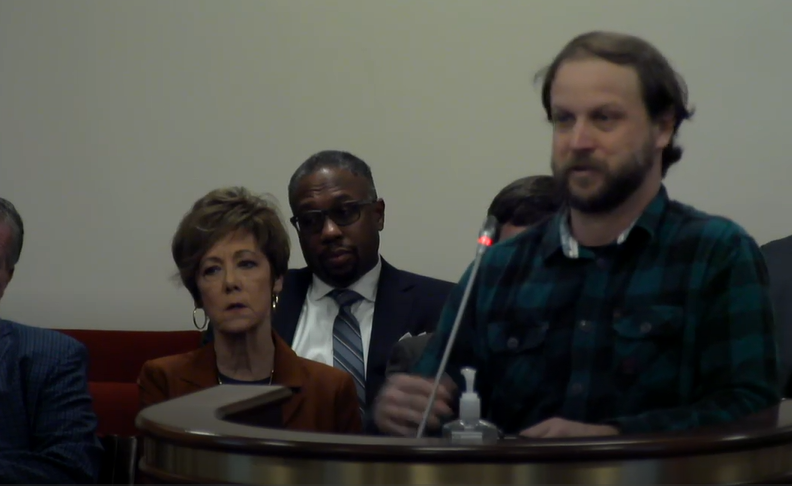- Home
- About
- Insurance
- Quote
- Dental/Health
- Service
- Notary
- News
- Referral Partners
- Agent Resources
Interested in Legislation?
Get automatic alerts for this topic.

[ad_1]
Businesses and homeowners will be familiar with insurers of last resort – the state-created, quasi-governmental organizations that provide property and liability coverage when the primary market won’t. These include windstorm underwriting associations or corporations in a number of states, a medical malpractice association in South Carolina, and assigned-risk workers’ compensation funds across the country.
This year, South Carolina lawmakers are considering a bill that would bring that approach to liquor liability insurance for bars and restaurants. Some establishment owners have said the plan – along with other solutions – can’t come soon enough, after they’ve seen premiums double or even quadruple in the last few years as private insurers have stepped back from the unprofitable market.
“Our broker took our policy out to over 40 carriers; 33 declined; three did not respond,” Carl Sobocinski, owner or founder of at least seven popular restaurants in the state, told a joint legislative committee last week.
The reasons the declining insurers gave ranged from “no longer writing in South Carolina,” to “too great of a share of revenue that came from liquor sales.” In the end, he said he was left with one option, which raised his premium from $62,000 a year to more than $115,000.
“With just an 86% increase, I feel like one of the lucky ones,” Sobocinski said.
He told lawmakers about another restaurant in Greenville that saw its premiums jump from $8,000 in 2022 to $50,000 this year.

The crisis has forced some long-established bistros out of business or into mergers, and more closings are expected this year, restaurateurs and insurance brokers have said.
House Bill 5066, sponsored in part by Rep. Jason Elliott, R-Greenville, is titled the Fair Access to Insurance Requirements, or FAIR Act. It would create a liquor liability fund financed by part of the revenue from an excise tax on drinks. The fund would be able to contract with a private insurance company to administer the program.
The fund would have its limits. To qualify for the risk mitigation program, the establishment must close its doors by 10 p.m. That would allow the owners to reduce their coverage limits by as much as $100,000 for each hour the place closes early, the bill reads.
The owner of a well-known pub said that stipulation would not help bars and nightclubs that make most of their money after hours.
“I can’t close two hours earlier because I can’t make profit margins,” Josh Bumgarner, proprietor of Transmission Arcade in the state capital and college town of Columbia, told the committee.
Bumgarner said he also would not benefit from the 30% ceiling on alcohol sales that HB 5066 would require. Most late-night clubs and even some restaurants are well above that threshold already, he said.
The plight of eating and drinking establishments and their insurance costs has become a big issue in tourist-dependent South Carolina in recent years largely due to two factors: State law has long allowed joint and several liability under which businesses found to have played a minor role in an injury or death can be held 100% liable. Then, in 2017, the state General Assembly approved a law that upped liquor liability coverage requirements to $1 million, after a high-profile auto accident that killed two people and severely injured a police officer. Neither the driver nor the drinking establishment had liability insurance, leaving the officer’s county employer to pay the medical expenses.
Combined with the joint-and-several law, the coverage requirement has upended the hospitality world. A report by the state Department of Insurance in January said the liquor liability market in the state is “extremely unprofitable” for insurers.
Senate Bill 533 would allow juries to apportion fault in most liability lawsuits, as a number of other states have done. But that bill, after gaining attention early on, appears to have stalled in the legislature. It has not seen a votes since it was assigned to a Senate Judiciary Committee subcommittee. South Carolina news outlets have reported that Mothers Against Drunk Driving and others have opposed the change, saying it would ignore the fact that South Carolina has an inordinately high rate of drunk driving accidents and deaths.
House Bill 5066 would not lower the $1 million coverage requirement, except for those places that close early or restrict alcohol sales. But it would change it from $1 million in total coverage to a $1 million annual aggregate limit, which some in the industry have said could help reduce premiums for bars and restaurants.
The bill is still in the House Judiciary Committee. A subcommittee meets Feb. 27 to consider it. Supporters believe it could gain traction before the legislative session ends May 9.
“All of us in the General Assembly have been hearing from our constituents about this,” Rep. Elliott, the bill’s sponsor, said at the committee meeting. “I believe we can find a way to balance safety and business interests. We want to lower insurance premiums by bringing more carriers back to the state.”
Top photo: Josh Bumgarner, proprietor of Transmission Arcade, speaks at the legislative committee last week. (South Carolina General Assembly)
Topics
Legislation
South Carolina
Get automatic alerts for this topic.
[ad_2]
Source link
Comment (0)